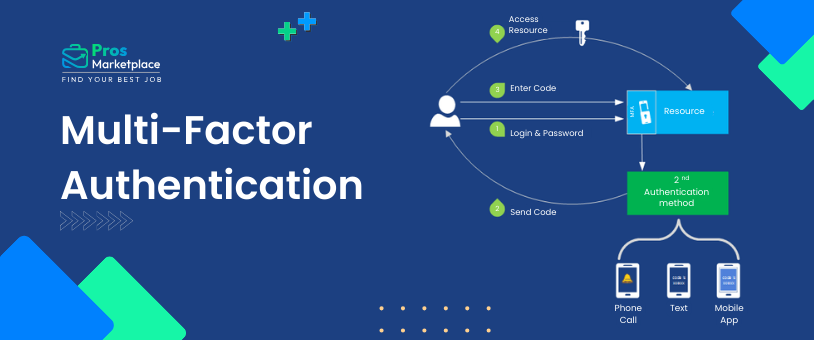With 60% of workers now operating remotely, and at least 18% possibly not returning to traditional office settings, the importance of safety tips for work from home cannot be overstated. This transformative change, coupled with an increased reliance on public cloud services and interconnected supply chains, exposes new data to heightened risks of cyber attacks.
The expansion of remote work has also given rise to potential cybersecurity challenges. IT workers, in their quest for productivity, sometimes introduce unsanctioned technology. Sushila Nair, VP of Security Services at NTT Data Services, points out that this shadow IT often operates without the necessary security scrutiny, as it remains undetected. Thus, amidst this shift to remote work, prioritizing safety tips for work from home becomes imperative to safeguard both data and productivity.
Moreover, the traditional defenses built within organizational perimeters, such as firewalls and intrusion detection systems, find themselves less effective as remote work takes the spotlight.
Cybercriminals are quick to exploit the vulnerabilities emerging in remote work infrastructure, shifting their focus towards attacking home-based workers who lack the protection of established organizational enclaves.
A single inadvertent action, like copying work material or sharing confidential information through personal channels, can have severe consequences. That is why following measures like safe equipment, and tripwires to detect and VPN have become a must-have. Here are some safety tips for work from home people.
Safety Tips For Remote Work
Working from home brings safety concerns that we can’t ignore. Accidents often happen at home, so taking safety seriously is important. Not prioritizing safety can lead to consequences we can not escape like – physical harm, stress, and lower productivity, affecting both personal well-being and business success. So follow these steps to stay safe from cybercriminals when working remotely
1. Secure your home office
Preserving physical security remains crucial, especially in the context of remote work. Just as one diligently secures the office space upon leaving for the day, a similar level of vigilance is indispensable when working from home. The potential risk of theft extends beyond traditional office settings, with laptops becoming vulnerable targets in the backyard, living room, or home office.
Incorporating safety tips for work from home is paramount. Extend the same level of security protocols to the home office environment. Locking the door to your dedicated workspace adds an extra layer of protection, reinforcing the notion that remote workspaces should be treated with the same security consciousness as traditional office spaces.
By adopting these simple yet effective practices, you not only safeguard valuable work equipment but also instill a sense of security within your home workspace. Incorporating safety tips for work from home ensures that even during breaks, the integrity of your work environment remains intact, fostering a safer and more productive remote work environment.
2. Add multi-factor authentication

MFA requires two authentication factors, improving protection against phishing emails and malware infections.
By employing MFA, even if an unauthorized party gains access to your password, they are thwarted from logging in without the second crucial piece of evidence. This second factor commonly manifests as a one-time code or push notification, providing an additional layer of security beyond the conventional password.
While SMS is a commonly used second factor, its vulnerability to attacks, such as SIM card switching through social engineering, renders it less secure. Recognizing this, industry standards like NIST SP 800-63 Digital Identity Guidelines discourage its use in MFA setups.
3. Use VPN
Safeguarding your data from online threats has become essential. The concerns of cybersecurity make it difficult to ensure complete security, making it essential to use appropriate security measures.
However, we can use preventive methods like antivirus software. This will not only detect and eliminate existing viruses but also act as a proactive defense, preventing infections from taking root in your running system.
A VPN creates a secure and encrypted connection, permitting you to send and obtain information throughout public networks as though on a private one. This added layer of safety makes it more difficult for intruders to intercept or alter your data. Moreover, a VPN ensures that websites can not track or trace your digital footprint.
In a global world full of digital pitfalls, a sturdy antivirus application and the usage of a VPN provide powerful protection against various cyber threats. Strengthening your cybersecurity measures is not only a desire; it’s a need in our interconnected online fact.
4. Separate work and personal devices
Maintaining a clear boundary between personal and work-related technology is crucial in fostering a secure and efficient digital environment. Refrain from utilizing personal gadgets for work tasks and vice versa, as this practice helps avoid potential conflicts within your device’s environment, applications, and services.
The integration of personal services on your work devices can pose a significant risk, leading to conflicts and potential breaches of data protection laws, such as GDPR. A seemingly innocent copy-paste action or inadvertently sending a work file through personal communication channels, like a Facebook chat, can inadvertently violate confidentiality and compromise sensitive information.
Strategically implement safeguards and tripwires on your work laptop to detect and respond to human errors promptly. Keep personal matters confined to your personal gadgets, fostering a clear separation between your professional and private digital spheres
5. Unplug large devices
Unplugging large appliances when idle serves as a proactive measure in stopping overheating and mitigating the potential risk of electrical fires. This easy yet powerful practice can add strength efficiency and protection to your remote workplace.
Particular attention also must be directed towards gadgets housing exposed heating factors, which include laptops and smartphones. Ensuring these gadgets are unplugged for the duration of durations of non-use is paramount, as it no longer most effectively conserves power but also reduces the likelihood of overheating incidents that could lead to electrical malfunctions.
By adopting this conscientious approach, you actively protect your appliances while improving the general safety of your environment. This habit extends beyond mere energy conservation as it acts as a preventative measure for prolonged electric connectivity.
6. Secure your home router
Exploiting default passwords on domestic routers is a common tactic followed by cybercriminals due to the large tendency of individuals to neglect them. This oversight leaves home networks vulnerable to unauthorized get admission to and capability safety breaches.
Taking an easy but essential step, changing your router’s password from the default to a unique, personalized one notably enhances the security of your private home network. By doing so, you escape from malicious individuals seeking unauthorized entry into your devices.
While converting the password serves as an essential protective measure, there are additional proactive moves you can put into effect to strengthen your own home community’s defenses. Prioritizing the prompt installation of firmware updates is imperative. This additional layer of security further bolsters your home community against capability cyber threats, supplying a comprehensive and resilient defense against unauthorized entry and cyber intrusions.
Concluding Words
Recognizing home office safety as more than a formality is vital. It’s about creating a secure, comfortable workspace. Being aware of safety helps maintain good performance and lowers the risk of injuries, ensuring remote work remains a viable option.
This goes for both freelancers and self-employed individuals. Their success depends on a safe and efficient workspace. By prioritizing safety, they can perform better and secure their livelihoods in the changing world of remote work. Embracing safety is a key part of thriving in the remote work culture.






